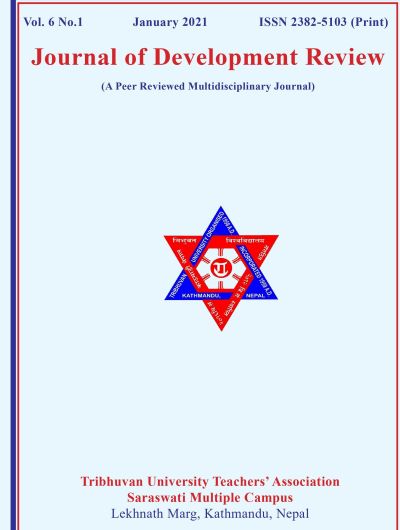Renaissance Humanism and Tragic Heroism in Christopher Marlowe’s The Tragical History of Dr Faustus
DOI:
https://doi.org/10.3126/jdr.v6i01.66936Keywords:
hamartia, compromise, repentance, Humanism, tragic heroismAbstract
This paper purports to explore and analyze the issue of humanism and tragic heroism in Christopher Marlowe’s play Dr. Faustus. The main contention of this article is to show that the play celebrates the spirit of humanism by placing Faustus at the center of the play and focusing on his quest for knowledge and power. Dr. Faustus works outside the framework of moral and religious world view and tries to reach beyond the boundary of normal human limits. He behaves as if he is his own god and pushes himself in the direction of relentless pursuit of knowledge. Though he fails to use his power for the betterment of mankind, his unbridled passion for mastery can be interpreted as a celebrationof spirit of humanism. That he is determined to pursue his goal without any heed to the entreaties of other people shows his heroic spirit. However, his misuse of power and pathetic condition during the moments of remorse and repentance robs him of the tragic height that befits a true hero. When the period of twenty four years comes to an end he behaves frantically and acts like a coward which tends to compromise his heroic stature. Thus, both his humanism and heroism are compromised.




